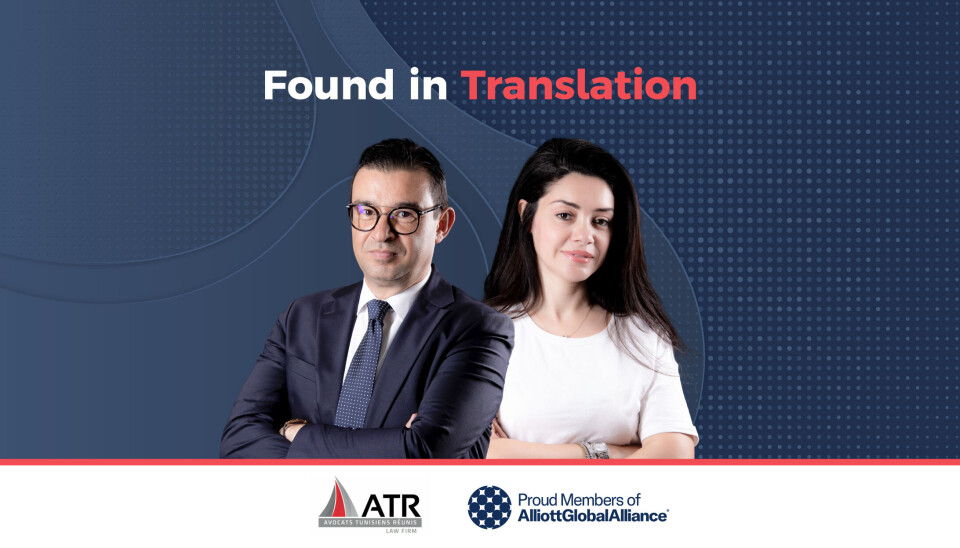As business becomes more international and a greater range of foreign clients look to invest in Africa, lawyers offering cross-border expertise plus multilingual mastery can be the crucial connection, say Walid Ben Amor and Imen Neifar of Avocats Tunisiens Réunis (ATR).
“The fact that we are a multilingual firm has hugely contributed to motivating and increasing the number of investors who trust in our law firm, especially when it comes to clients who believe in the vital role that international communication plays,” said Walid, the managing partner of ATR, a leading Tunisian firm that’s also part of Alliott Global Alliance, an elite coalition of top legal and accounting experts in 225 firms across some 100 countries.
At ATR, the department heads and many lawyers speak English, Italian, French and Arabic. This helps them relate to and build connections with clients in Francophone and other African countries, the Middle East and Asian countries, along with North American and European investors, explained Walid and Imen.
“It’s easy for us to attract international clients because they can be 100% sure that their query will be perfectly understood by everyone, because we understand the languages used by the client,” Imen said. “It gives us an opportunity to place Tunisia as a hub, because we can really connect different cultures and different businesses.”
In April the World Economic Forum noted the fast-growing partnership between the Middle East and Africa, and reported that in 2023 alone, companies from UAE, Saudi Arabia, Qatar, Kuwait, Bahrain and Oman announced 73 projects in Africa worth more than $53 billion.
“Because those countries may only speak Arabic and English, and Francophone African nations speak French and local African dialects, a rare firm like ours that speaks different languages can coordinate tasks across those countries and play a major role,” Imen highlighted.
The advantage of multilingual lawyers has also been shown in the Tunisian courts, noted Walid and Imen, where their firm has represented foreign clients in Arabic-speaking proceedings, not only translating across languages, but also conveying the context and technical legal concepts, ensuring the client is understood by the court and the court by the client.
“As business activities get more and more international, and since we’ve chosen to introduce the use of several languages by our lawyers, clients are more at ease and way more confident that their matters are well understood,” emphasised Walid. “Communication is much more fluid.”
The internationalisation and multicultural connections Walid has promoted since he became managing partner, have been bolstered by ATR’s membership of Alliott Global Alliance, which Walid and Imen both see as more like “a big family of which we’re very, very proud”.
“It’s rich and interesting to us to reach people all over the world through the alliance – people from different cultures, speaking different languages, and with different habits – and we appreciate the opportunity to work on big international projects, along with social events,” shared Imen.
Closer to home, Tunisia is ready for greater foreign investment, says Walid, and ATR is ready to help investors across many sectors, meeting international client needs in the clients’ own languages.

